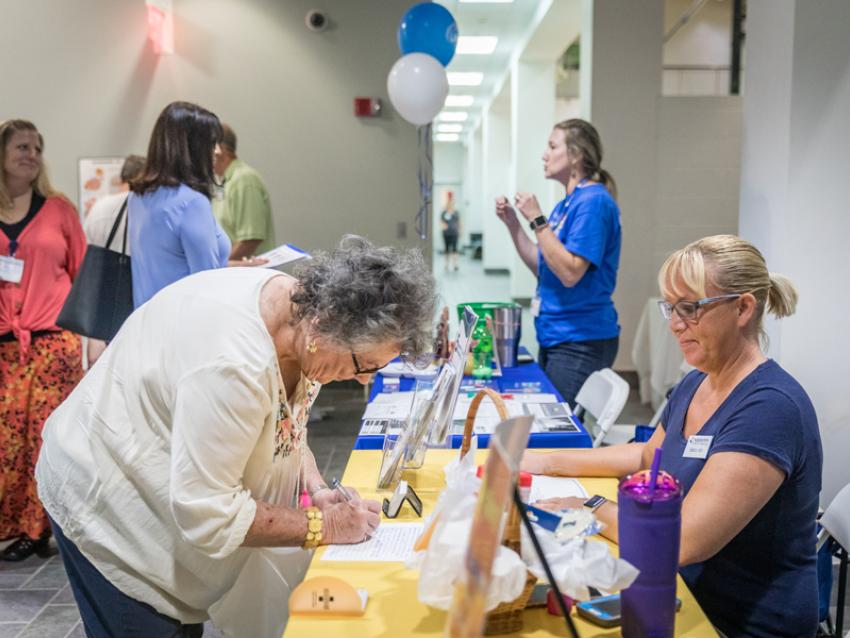
College of Nursing Partners with Community for Health Fair, Announces K-CARE Results
Thanks to Owensboro Health, the University of Kentucky College of Nursing and the UK HealthCare Markey Cancer Center, residents of Owensboro received free screenings for blood pressure, diabetes, spirometry, HIV and more at a community health fair at Owensboro Health's Healthpark on Saturday, September 21.
People who attended the health fair also learned about cancer screenings, tobacco cessation, weight management and Healthpark programs. Several health care professionals were available, including some who work in cardiology and respiratory therapy. OH community partners, such as Audubon Area Community Services and Green River District Health Department, provided educational materials.
Additionally, the results of a six-month project titled K-CARE were released. OH, UK College of Nursing and UK HealthCare Markey Cancer Center have partnered on K-CARE, a local grassroots effort to spread the word about low-dose radiation CT lung cancer screenings and tobacco cessation. K-CARE stands for Kentucky Community Cancer Awareness Research and Education. The project was funded by a grant from the National Cancer Institute.
"With this community-based research project, I had to rely on people who were trusted in the community," Dr. Williams said. "Having (OH's) collaboration was key to success."
She believes the K-CARE project was successful enough to develop a statewide model. Dr. Williams plans to publish information she gathered and write a grant to expand the program statewide.
Dr. Williams and Dr. Maria Gomez, also from the UK College of Nursing, worked for about a year to introduce the K-CARE project to the region through African-American and Latino churches and other community organizations. The community engagement project seeks to improve cancer outcomes among racial minorities and medically underserved populations, which suffer from higher morbidity and mortality rates from lung disease.
"Dr. Williams and Dr. Gomez presented to the Owensboro Health Tobacco and Related Priority Focus Area team in November of last year, and we recognized what a tremendous opportunity this was for our community to improve lung cancer outcomes ... ," said Debbie Zuerner Johnson, OH director of community engagement. "Their research could impact not only this community but communities everywhere. Introducing them to the Owensboro-Daviess County community and being a partner to this work is collaboration at its best, and we are so proud of the work UK and the community health workers have done thus far."
Nationwide, only up to 5% of the eligible population has used low-dose CT scans, Williams said. That type of screening provides a more detailed picture of the lungs than X-rays and do a better job of catching early-stage cancer.
Candidates for lung cancer screenings are at least 55 years old and have a 30 pack-year smoking history, which means they smoked a pack of cigarettes daily for 30 years. Also, they are still smoking or have quit within the past 15 years. High-risk populations should be screened annually through the age of 74, according to the American Cancer Society.
